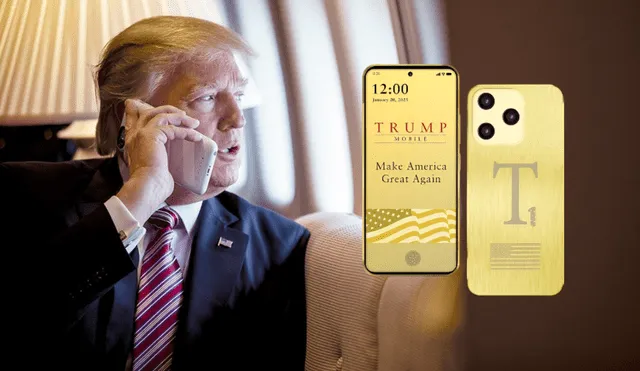Trump Organization launches “Trump Mobile” service with $499 smartphone to rival major carriers
The Trump Organization enters the mobile market with a made-in-America phone and $47 monthly plan.

The Trump Organization has officially ventured into the mobile phone industry by launching Trump Mobile, a new wireless service for conservative consumers. On Monday, the company unveiled a self-branded $499 smartphone, as well as a subscription plan, which includes what the company describes as U.S.-based customer service. The Trump organization also offers a host of bundled services.
The venture was launched at Trump Tower in New York City by Donald Trump Jr. and includes telemedicine and roadside assistance, and international texting, all included in a single monthly fee, and it represents significant diversification for the Trump family business, which is generally known for real estate, luxury hotels, and golf resorts.
Trump Mobile expands family’s growing business portfolio
The launch of Trump Mobile adds to the Trump Organization’s larger initiative to diversify into sectors beyond real estate. In past years, the company has dabbled in cryptocurrency and digital media and the new mobile service marks its most aggressive expansion into consumer technology. Said Trump Jr., the effort was envisioned as part of an “entire package” of lifestyle and communication services meant to appeal to its diehard base.
Along with the $499 phone, the Trump Mobile website also advertises a subscription plan for $47.455 per month that says customers can unlimited text to over 100 countries. The announcement comes at a time of increased scrutiny of how the family’s business dealings could potentially intersect with their political aspirations – Trump already submitted trademark applications for telecom services under “Trump” and “T1.”
Competing in a crowded telecom market
Entering the U.S. mobile phone and wireless industry is no easy task; the market is primarily made up of Verizon, AT&T and T-Mobile - which together control over 95% of the wireless service market. These telecom companies maintain vast infrastructures, far greater than any start-up could build. Additionally, they have created brand loyalty that diminishes the potential attraction of new entrants into the market.
Moreover, almost all smartphones sold in the U.S. are not manufactured in the U.S. but rather overseas, primarily in China, South Korea, and India, primarily due to cheaper labor costs and lower cost of the entire supply chain. Trump Mobile's commitment to using American-made devices and using domestic call centers offers a distinct symbolic choice for subscribers, but the high costs of labor and the lack of reference infrastructure currently in the U.S. will likely prevent any long-term success as an ongoing player in the extremely competitive wireless market.













